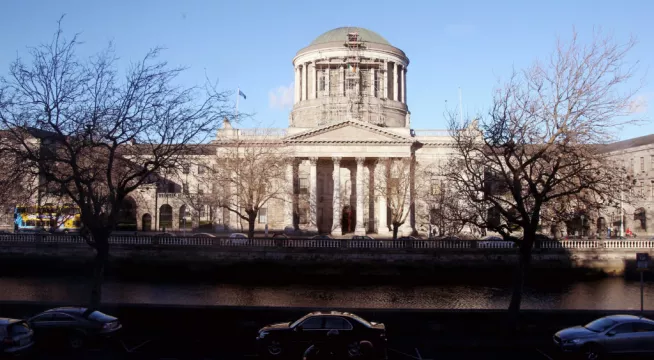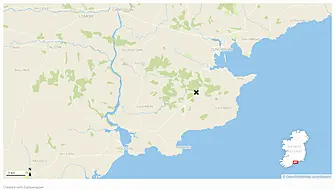Child protection legislation does not require Health Service Executive (HSE) therapists and other mandated people to report to Tusla when an adult discloses historic child abuse, provided there is no reasonable suspicion that a child is at risk, the Court of Appeal has ruled.
Mr Justice Donald Binchy held on Friday that the High Court fell into error in concluding that mandated workers were required to do so by section 14(1)(a) of the 2015 Children First Act.
He said there was “no ambiguity” about who a “child” was when used in the phrase “a child [...] has been harmed” in the Act. It refers only to a person who, at the time the mandated person becomes aware of the alleged harm, is a child and “cannot in any circumstances include persons over the age of 18 years”.
Notwithstanding this interpretation, a mandated person who, on foot of an adult’s disclosure of historic abuse, suspects a child is at risk of harm, must report that suspicion to Tusla under section 14(1)(c).
The Appeal Court’s interpretation contradicts a HSE policy that requires its therapists and other mandated workers to report an adult’s disclosure of historic child abuse to Tusla, the child and family agency.
The policy, which was adopted following the HSE’s revised interpretation of its statutory obligations under the 2015 Act, was challenged in court by Tom McGrath, director of counselling with the HSE at John Street, Sligo.
Mr Justice Binchy said Mr McGrath’s request to have the entire 92-page policy struck down appears to be “too wide”, so he invited the parties to agree on an appropriate order to be made in light of his conclusions.
Mr McGrath claimed the new operating procedures, which apply to National Counselling Service staff, wrongly do not distinguish between current and retrospective harm.
A report must be sent to Tusla, even if the client is now an adult, there is no current risk of harm to a child, and the alleged perpetrator is not identifiable.
He said an adult client was denied counselling if they did not consent in writing to a report of their account of child abuse being sent to Tusla.
Concerns
Under the previous policy, issued in 2019, Mr McGrath said, counsellors were obliged to report current concerns where they had “reasonable grounds to suspect harm or risk of harm to any child currently under the age of 18”. They also had to report abuse allegations if the alleged perpetrator was identifiable.
Mr Justice Binchy referred to concerns raised by the National Counselling Service in late 2019 about the HSE’s direction to mandated workers.
It believed it was very likely vulnerable clients would no longer avail of counselling if they were told any disclosure of childhood abuse must be reported to Tusla, even if they did not provide any information identifying the abuser.
The judge said the service said this could actually increase the risk to children, as fewer adults using the services would, in turn, reduce reporting of historic childhood abuse to Tusla, rather than increase it.
The service said its adult clients were more likely to engage with Tusla after engaging in a safe therapeutic relationship.
After seeking legal advice, the HSE issued its new procedure in December 2021, requiring all historic child abuse to be reported.
The HSE denied it erred in its interpretation of the mandatory reporting provisions, which it said would increase reporting of retrospective abuse.
'Unambiguous conclusion'
The High Court found the “plain meaning of the words” at section 14 of the 2015 Act leads to an “unambiguous conclusion” that a reporting obligation applies to a disclosure of child abuse by an adult.
The Court of Appeal overturned this decision on Friday, finding the judge erred in failing to place sufficient emphasis on the statutory definition of the word “child”.
He also said it was not for the court to determine, and it could be impossible to answer anyway, whether Mr McGrath or the HSE’s preferred approach to mandatory reporting would lead to more reporting of retrospective abuse.
He noted the HSE’s requirement could have a “profound impact” on affected victims, so if this was intended by the Oireachtas it would probably have been clearly expressed in the legislation.
Section 14, as interpreted by the Court of Appeal, was consistent with the wider 2015 Act and does not undermine the legislative intention to protect children, the court ruled.
This interpretation does not obviate the obligation of mandated people to report “any reasonably held suspicions that a child is at risk of harm”.
Ms Justice Aileen Donnelly and Ms Justice Úna Ní Raifeartaigh agreed with the decision.







